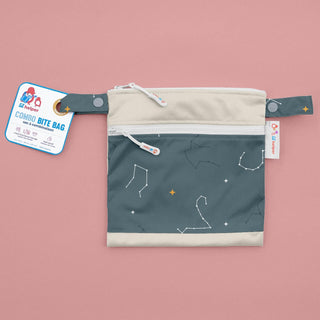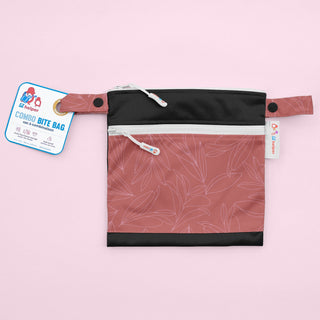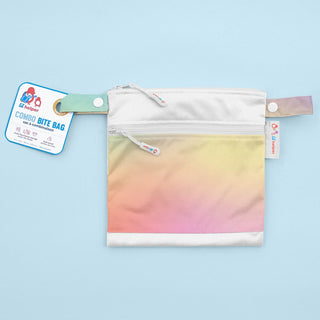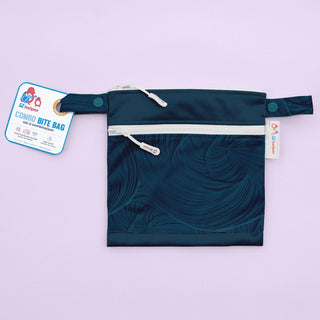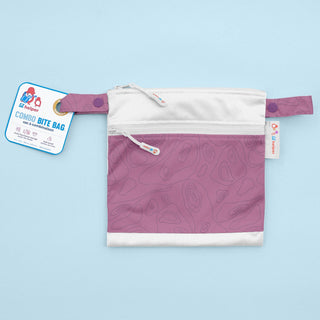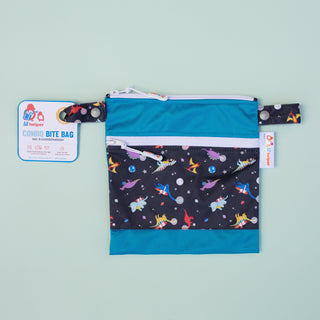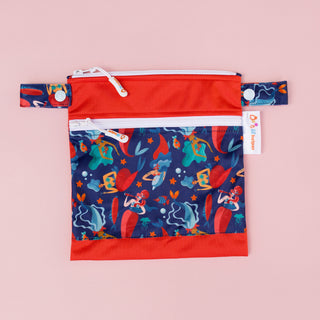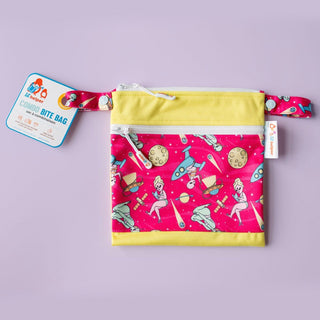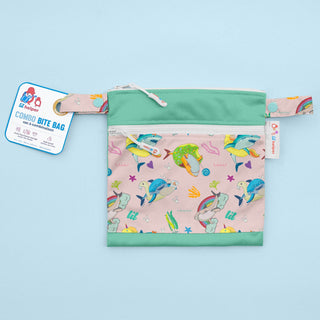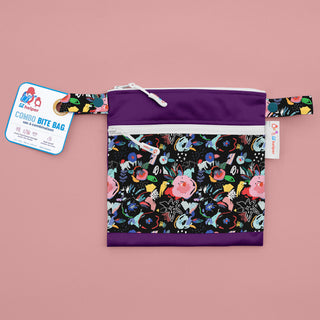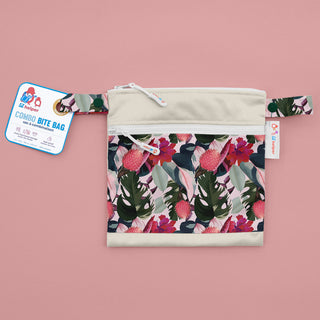
Making a commitment to reduce waste in your home is one of the best ways to help protect the environment for future generations AKA your little pooper. Here are some quick tips on how your family can reach zero waste waste in your home!
1. Say “NO” to plastic
Plastic is one of our most incredible and convenient inventions. Without it, we wouldn't be able to enjoy many of the modern luxuries we use in our daily lives. But it is also a major polluter on land and in our oceans. Avoid purchasing products with plastic packaging. Phew, that's a tongue twister! If you are able to, choose products that do not have any packaging (i.e. loose fruit & vegetables) or products packaged with reusable materials such as glass & metal. It's hard to avoid especially when this is a common sight in our grocery stores: - avoid purchasing individually wrapped fruit and vegetables of choosing individually portioned snacks, go with bulk.

Those little goldfish packets are so tempting because they're easy to throw in diaper bags & lunch boxes. But it is just as easy to fill a reusable container with the snack that smiles back until you bite their heads off!
BONUS: Buying the bigger sizes is usually the cheaper option so your wallet will thank you too!
Remember to bring reusable shopping bags with you. If you're anything like me, you'll forget them. Every single time. You can still say no to plastic bags if you're travelling by car! Just load your groceries in your trunk and transfer them to your reusable bags when unloading at home.
2. Buy Second Hand for a Zero Waste Wardrobe
When you decide to shop second hand, you're skipping out on all the tags, packaging and resources that go along with brand-new things. Read more about why we think buying second hand (even Lil Helper cloth diapers) is the bee's knees
3. Reduce food waste
Growing and shipping food uses a lot of the Earth's resources. It is estimated that >1/3 of the world's food is wasted every year. That means the resources that went into producing that food are wasted too.
Plan your meals.
Not only will this reduce food waste by only shopping for the ingredients you know you will use, it will save you money and time as well! Cooking on the fly can lead to expensive last-minute trips to the corner store for overpriced ingredients. It can mean eating out more often than your wallet would like because you aren't prepared. Meal planning is easy once you make it a part of your routine.

Use scraps to make broth. Vegetable peels and snacks abandoned by your toddler are perfect for making vegetable broth. Save your meat bones to make delicious, good for your gut bone broth. Make your own baby food and freeze it. Not only will you have peace of mind knowing exactly what your kid is eating by making it yourself, you'll also be avoiding all the packaging. Make the baby food ahead of time, pop it in the freezer and only thaw as needed. Baby food will keep in the fridge but it could go to waste if forgotten and uneaten.
4. Invest in good quality, zero waste water bottles.
If the tap water where you live is clean enough to drink - do it! Bottled water is often just tap water anyway. Make sure to invest in a good quality water bottle to drink from. Don’t go for a cheap reusable water bottle - they will often break or dent easily. Invest in good bottles that will last for your family. You can even have some fun personalizing them with permanent markers and stickers!
And when you do use a plastic water bottle, always recycle - it might just get turned into your next combo bag!

5. If you haven't already, switch to cloth!
Disposable diapers are the 3rd largest consumer item in landfills. Switching to reusable cloth diapers can greatly reduce waste in your home. Menstrual Pads are also a great cloth option for going zero waste in your bathroom. Give it a try! It’s easier than you think!
How are you working to achieve zero waste?

Organize your essentials in style with our Combo Bag. Modular design, leak-proof, & perfect for snacks, makeup, or small items. On-the-go convenience made easy.















